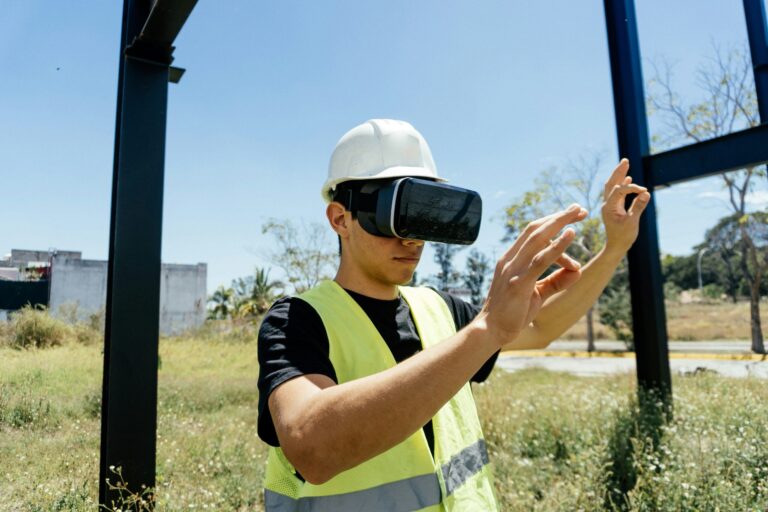Introduction
On June 2023, Matterport, a leader in 3D spatial data technology, entered into a strategic partnership with the Urban Land Institute (ULI) to launch a new virtual reality (VR) platform. This collaboration marked a significant step forward in the real estate industry, providing property developers and urban planners with an innovative tool for visualizing and planning property developments before construction even began.
The VR platform developed through this partnership aimed to help professionals in real estate, construction, and urban planning collaborate more effectively, enhance their decision-making, and streamline development processes by offering an immersive virtual walkthrough of properties. This technology was designed to give developers, investors, and architects an opportunity to explore spaces in a highly realistic, 3D environment, which significantly improved the planning phase.
What Is Matterport’s VR Technology?
Matterport is best known for its advanced 3D spatial data technology, which allows users to create highly accurate, immersive 3D models of physical spaces. Through its proprietary platform, Matterport uses specialized cameras and software to capture a space’s dimensions and layout, converting that data into detailed 3D models. These models can be explored in virtual reality, offering a more interactive experience than traditional 2D floor plans or static models.
The company’s VR capabilities enhance real estate professionals’ ability to visualize buildings and developments before they are physically built. This technology allows users to not only see the space but also walk through it, offering a true-to-life experience that was previously difficult to achieve without actual construction. For real estate developers and urban planners, this means they can now simulate a building’s appearance, flow, and overall design within its intended environment.
The Role of the Urban Land Institute (ULI)
The Urban Land Institute (ULI) is a nonprofit research and education organization that focuses on land use and urban development. ULI brings together real estate and land use professionals, including developers, urban planners, and architects, to share knowledge and promote responsible land development. By partnering with Matterport, ULI aimed to enhance the real estate development process, making it more efficient, collaborative, and data-driven.
The VR platform created by Matterport and ULI was designed specifically for property developers, architects, and urban planners, offering them an immersive tool to view developments from every angle, assess designs, and anticipate challenges that may arise during construction. The partnership’s goal was to offer a solution that would increase the accuracy and quality of real estate development projects by allowing professionals to “step inside” proposed buildings long before construction even started.
Key Benefits of the Matterport VR Platform
- Enhanced Collaboration and Communication:
One of the primary benefits of the VR platform was that it allowed stakeholders to virtually “walk” through a development without needing to be physically present. This is particularly valuable for international or remote teams, as it facilitates easier collaboration across geographic boundaries. The immersive experience enabled developers, investors, and urban planners to gain a clear understanding of the proposed spaces, even if they were located far away. - Improved Design and Decision-Making:
Traditional property planning relied on blueprints, sketches, and scale models, which, while effective, did not offer the same level of clarity or realism as a 3D virtual tour. Matterport’s technology provided a more tangible sense of space and design, allowing developers to make better-informed decisions regarding layout, materials, and overall aesthetics. - Cost and Time Savings:
The ability to detect and correct potential design flaws before construction started could save significant amounts of money and time. Early identification of issues such as spatial inefficiencies or structural challenges allowed developers to make changes at the planning stage, reducing the need for costly alterations during construction. - Investor and Client Engagement:
For developers, the ability to showcase properties to investors and clients using VR was a game-changer. Investors could explore a virtual property before committing funds, gaining confidence in the project’s potential. Similarly, clients could view and understand a property’s design in a much more engaging way than through flat, traditional marketing materials.
Industry Impact
The introduction of VR technology into property development has the potential to revolutionize the industry. Real estate professionals are increasingly using immersive technologies such as virtual reality, augmented reality (AR), and 3D modeling to improve their workflows. This trend is accelerating the adoption of digital tools in sectors such as architecture, construction, and urban planning. By using VR, developers can simulate various environmental factors, like lighting, traffic patterns, and urban context, which significantly influences the design and layout of developments.
Moreover, VR platforms can also assist in public engagement, especially for urban development projects. Virtual walkthroughs of proposed developments allow the public and local stakeholders to better understand how new buildings or neighborhoods will fit into the existing urban landscape. This can lead to more transparency, public feedback, and, ultimately, better community outcomes.
Conclusion
The partnership between Matterport and ULI represents a significant leap forward for property development and urban planning. By combining Matterport’s cutting-edge 3D spatial technology with the Urban Land Institute’s expertise in real estate development, this new VR platform provides an unprecedented tool for designing and planning buildings. For developers and planners, this innovation promises to streamline the planning process, enhance collaboration, and reduce costs while offering a more realistic and immersive way to visualize potential projects.
The integration of virtual reality into property development is set to become a standard practice in the industry, pushing forward the way real estate professionals approach design, collaboration, and decision-making. As VR technology continues to evolve, it is likely to further shape the future of real estate development in exciting and impactful ways.
For more information on Matterport’s VR technology for property development, visit Matterport’s official website.
